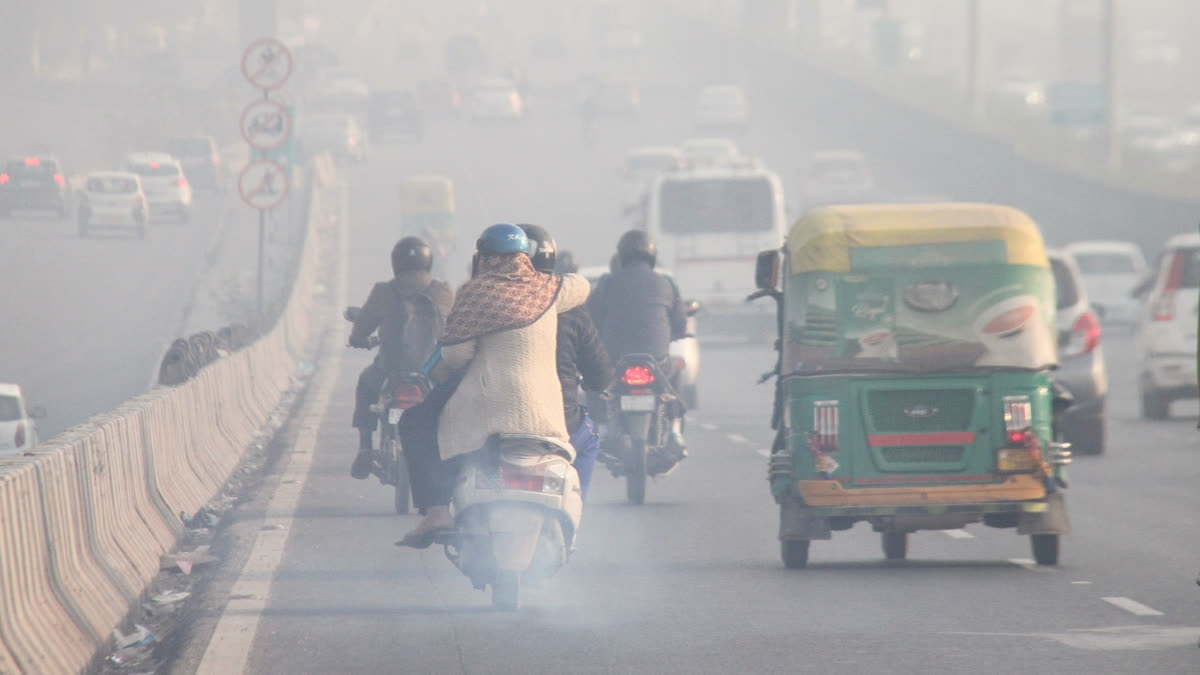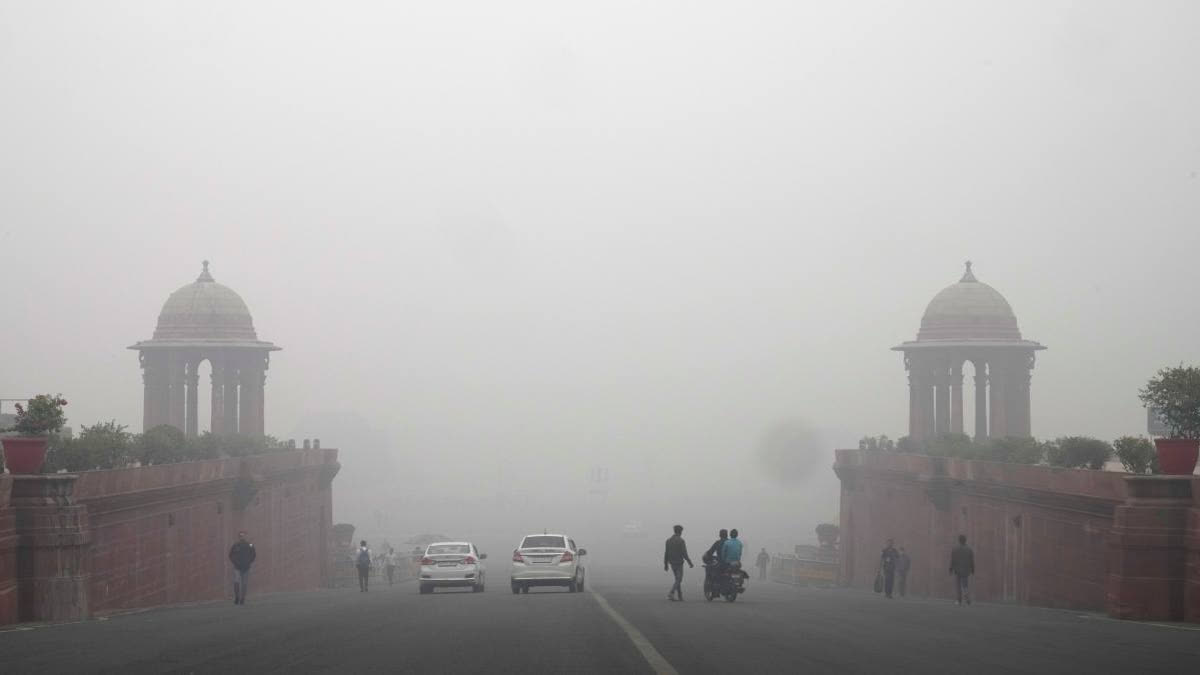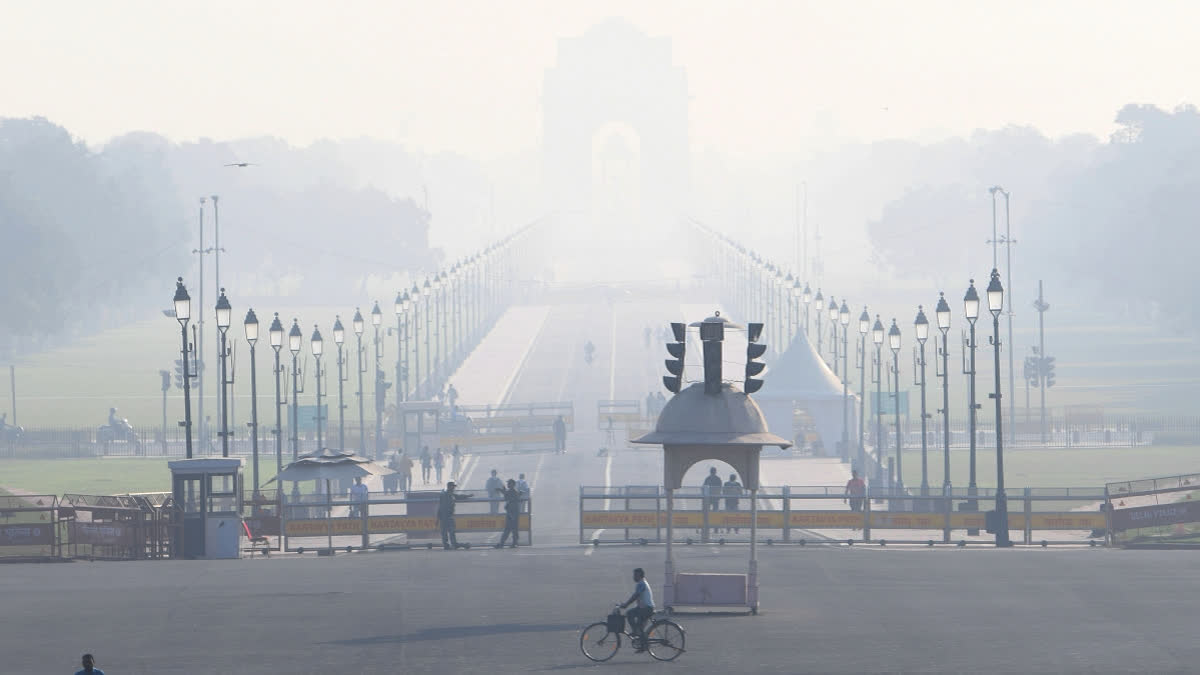Pollution has become one of the leading causes of death in India, with recent reports indicating that over 2.3 million premature lives were lost in 2019 due to its devastating effects. Nearly 1.6 million deaths were due to air pollution alone, and more than 500,000 were caused by water pollution.
This alarming statistic indicate the urgency to address the environmental crisis that is not just degrading ecosystems but is also taking a severe toll on human health. A new study from Karolinska Institutet shows that long-term exposure to air pollution contributes to millions of deaths in India. The research, published in The Lancet Planetary Health, emphasises the need for stricter air quality regulations in the country.
The study states air pollution consisting of particles smaller than 2.5 micrometers in diameter, PM2.5, can enter the lungs and bloodstream and is a major health risk in India. Researchers have now examined the link between these particles and mortality over a ten-year period. The study is based on data from 655 districts in India between 2009 and 2019.
“We found that every 10 microgram per cubic meter increase in PM2.5 concentration led to an 8.6 percent increase in mortality,” says Petter Ljungman, last author and researcher at the Institute of Environmental Medicine at Karolinska Institutet.
The research analysed the relationship between changes in air pollution levels and mortality. The results show that around 3.8 million deaths over the period can be linked to air pollution levels above India's own air quality guidelines of 40 micrograms per cubic meter. When compared to the guidelines recommended by the World Health Organisation (WHO) – only 5 micrograms per cubic meter – the figure rises to 16.6 million deaths. That's almost 25 per cent of all mortality during the study period.
The study also highlights that the entire population of India lives in areas where PM2.5 levels exceed WHO guidelines. This means that almost 1.4 billion people are exposed year after year to air pollution that can negatively affect health. In some regions, levels of up to 119 micrograms per cubic meter were measured, significantly higher than what both the WHO and India consider safe.“The results show that current guidelines in India are not sufficient to protect health. Stricter regulations and measures to reduce emissions are of utmost importance,” said Petter Ljungman.
Major contributors of air pollution in India
The Indian government has been running a national air pollution control programme since 2017 to improve air quality, but the study shows that PM2.5 concentrations have continued to increase in many areas. According to environmentalist Abhishek Bhargava, some of the contributing factors for increased air pollution are India's rapid industrialisation and urbanisation, along with lax environmental regulations. Some of the contributing factors of increasing pollution in India.

Air pollution: Cities like Delhi, Mumbai, Kolkata, Kanpur, Lucknow, and Varanasi frequently rank among the world's most polluted. Vehicular emissions, industrial activities, construction dust, and the burning of fossil fuels have led to hazardous levels of particulate matter in the air.
Water pollution: Untreated sewage, industrial effluents, and agricultural runoff have polluted rivers like the Ganges and Yamuna, turning them into toxic waterways.
Soil contamination: Excessive use of pesticides and fertilisers, along with improper waste disposal, has degraded soil quality and polluted groundwater sources.
Waste management crisis: Overflowing landfills and inadequate recycling infrastructure have exacerbated pollution levels in urban and rural areas alike.
Long-term exposure and its deadly consequences
Pollution impacts human health in insidious ways, often manifesting years after initial exposure. Dr. Sanggita Checker, consultant chest physician at Wockhardt Hospitals in Mumbai says air pollution can significantly affect people resulting in life-threatening health issues. "It can negatively damage, or harm your lungs, heart, and also the brain. This happens when you are frequently exposed to harmful gases and particles daily. It can be an invitation to a range of respiratory diseases like asthma, and chronic bronchitis," said Dr. Checker.
She further said that over time, the toxic pollutants in the air can severely damage essential organs. "It can further lead to serious health problems like heart attacks, strokes, and lung infections. Prolonged exposure to pollutants can weaken your immune system while increasing the risk of cancer," she warned.
The key mechanisms through which long-term exposure to pollution causes death, according to Dr. Checker include:

Respiratory diseases: Chronic exposure to polluted air can lead to asthma, chronic obstructive pulmonary disease (COPD), and lung cancer. Fine particulate matter (PM2.5) penetrates deep into the lungs and bloodstream, causing inflammation and oxidative stress.
Cardiovascular problems: Air pollution has been linked to heart attacks, strokes, and hypertension. Studies show that pollutants like nitrogen dioxide (NO2) and sulfur dioxide (SO2) increase the risk of cardiovascular diseases.
Neurological impacts: Emerging research suggests that air pollution may contribute to neurodegenerative diseases like Alzheimer’s and Parkinson’s, as well as developmental disorders in children.
Waterborne illnesses: Contaminated water sources lead to outbreaks of diseases like cholera, dysentery, and typhoid, which can be fatal without timely intervention.
Care and precautions
While systemic changes are essential to combat pollution, Dr. Checker said, one needs to take proactive steps to protect themselves against increasing air pollution. Installing an air purifier in your house can help keep the air moist while flushing out harmful particles, and pathogens. "Avoid going outdoors, or opening your windows during the peak pollution hours such as in the morning or evening when most people are commuting to their workplace," she suggested.
She further suggests mindful action like checking air quality index (AQI) on phone before stepping outdoor. "Switch to eco-friendly transport like bus, railway, or local train in some cities instead of using personal vehicles like cars or bikes to cover shorter distances. This can help reduce air pollution. Plant more trees around your house to breathe clean air," suggests the doctor.
Read More:



